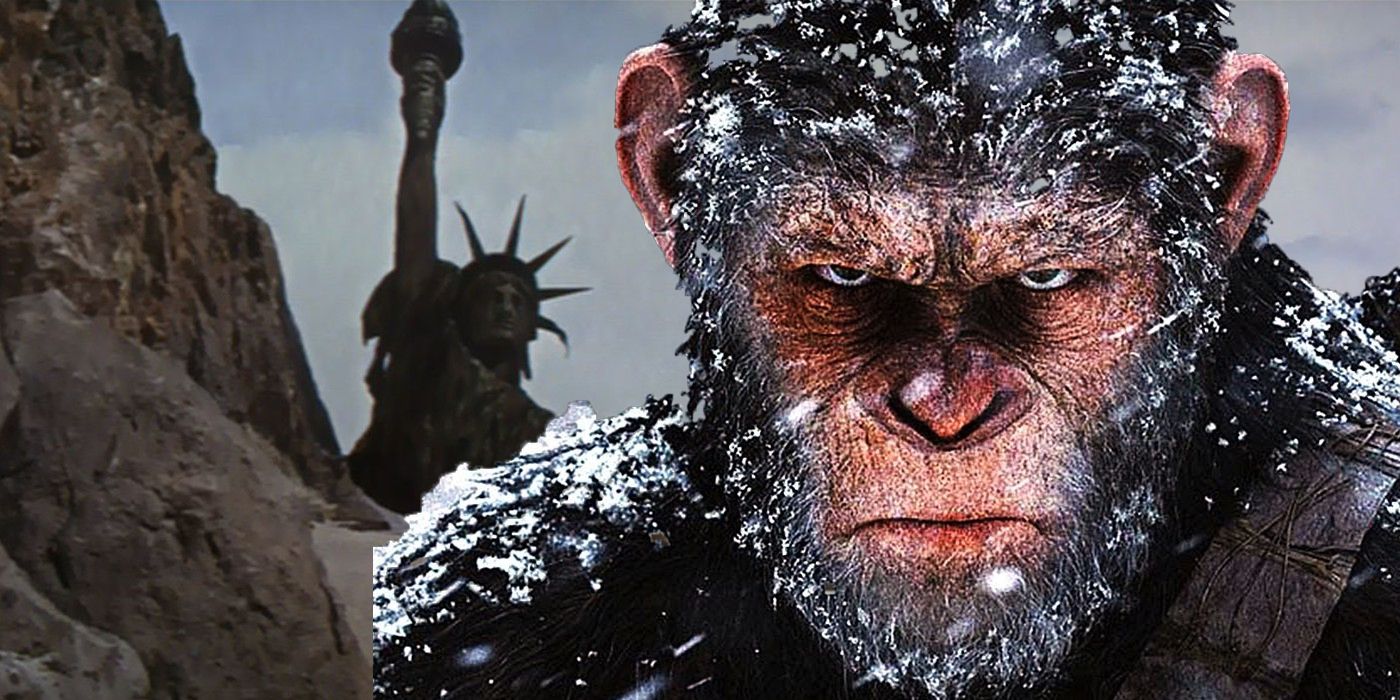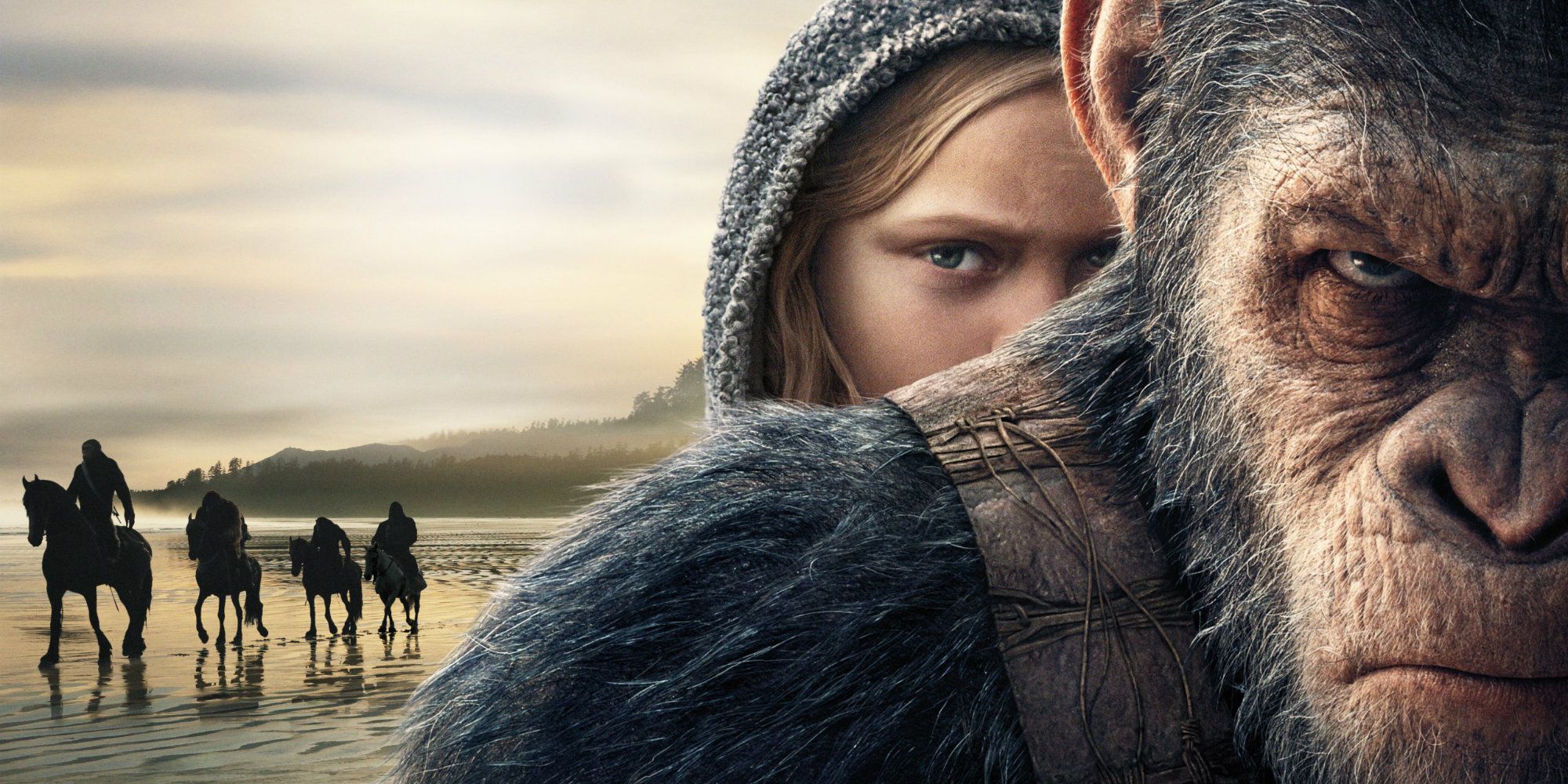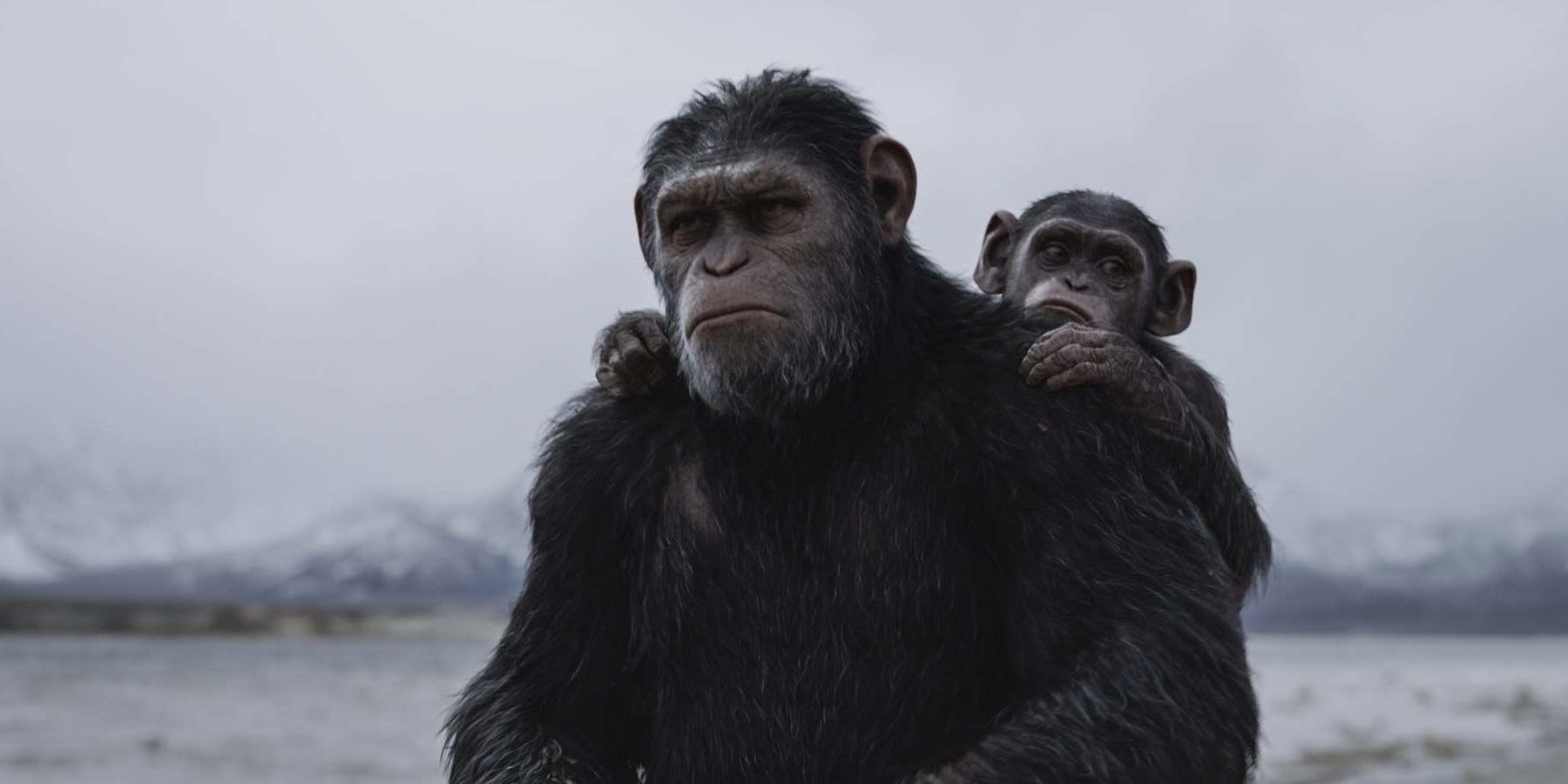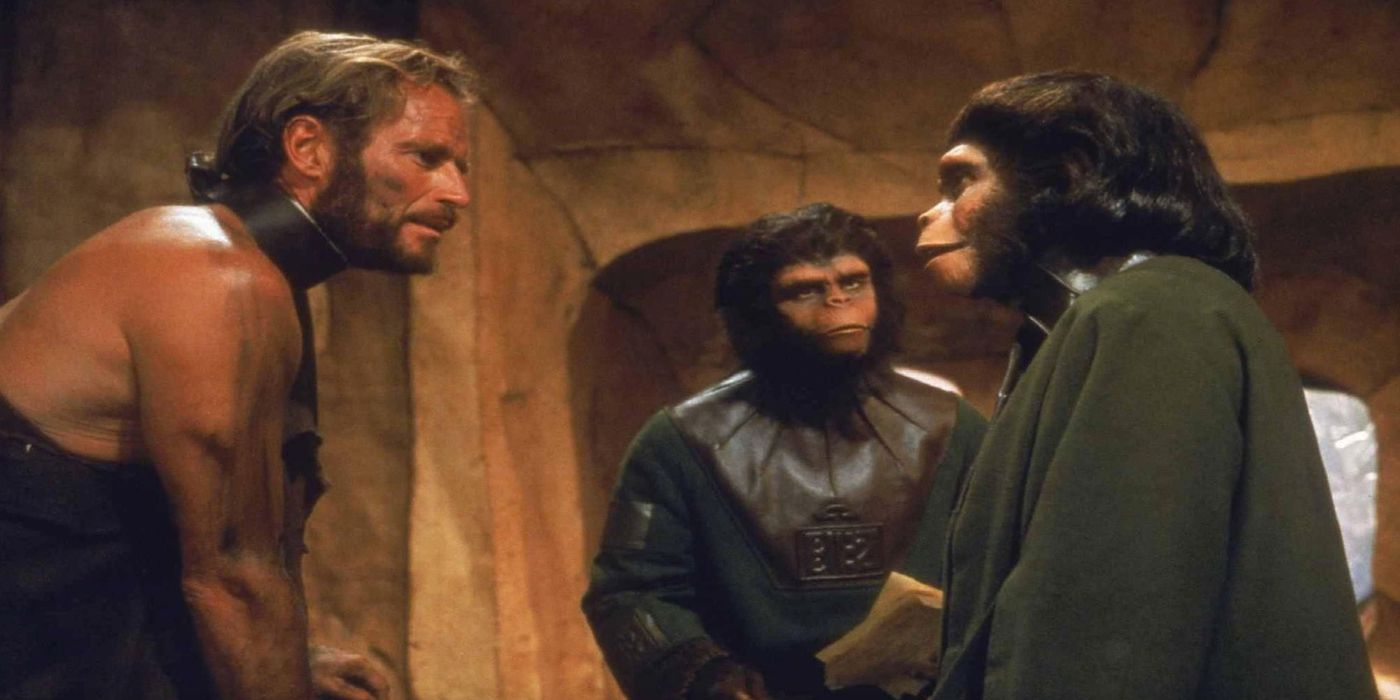Now that Disney owns Fox and its properties, they are beginning work on a new installment of Planet of the Apes, but instead of being another reboot, they could take cues from the previous series and continue with the legacy of Caesar (Andy Serkis). Planet of the Apes' origins go back to 1963 with the novel written by French author Pierre Boule, and the first adaptation on screen was in 1968. The original franchise lasted for five movies before it spawned a live-action television show and a cartoon. Director Tim Burton released a remake of Planet of the Apes in 2001, and while it was financially successful, it was not well-received critically. Life was once again given to the series in 2011 when the first film in a new trilogy hit theaters.
Rise of the Planet of the Apes introduced audiences to Caesar, a super-intelligent chimpanzee who is the result of anti-Alzheimer experiments undertaken by Dr. Will Rodman (James Franco). The series was taken over by director Matt Reeves for 2014's Dawn of the Planet of the Apes and 2017's War for the Planet of the Apes. In these installments, Caesar is tasked with protecting the growing population of intelligent primates as the Simian Flu destroys the human population and conflict arises between man and ape.
Disney's Planet of the Apes was recently announced with The Maze Runner series director Wes Ball attached. It was unclear if the new take would be a reboot, but Ball debunked that notion. Now that it seems Caesar's story will continue, there are a few directions this latest addition could take to bring it all together.
Earth Should Become An Actual Planet Of The Apes
1968's Planet of the Apes ends with astronaut George Taylor (Charlton Heston) discovering that the planet he and his crew landed on after waking from their lengthy slumber wasn't a distant, alien world, but, in fact, Earth. It had become a world dominated by the presence of primates, and the few humans left were primitive and mute. This is also the direction War for the Planet of the Apes was heading. The population of intelligent apes was on the rise, as those from the previous films were procreating and building a larger community. The human population was on the decline as man was fighting itself, as well as the apes, and the Simian Flu had evolved, no longer just outright killing people. A little girl named Nova contracted the flu and was rendered mute, and by the film's end, the disease had made other human characters voiceless, including The Colonel (Woody Harrelson).
With the human population dwindling and Caesar's clan of primates trying to find a safe place to avoid human conflict, it is only a matter of time before the apes are all that would be left. At the end of War for the Planet of the Apes, the army is in open conflict with Alpha-Omega, the paramilitary group hunting down the apes. If that trend were to continue, it wouldn't be long until bigger, nastier weapons are used, leaving the isolated apes the last ones standing, avoiding war whenever possible, and able to thrive.
Caesar's Son Can Lead The Apes & Create Ape City
Caesar was the glue that held together his clan of primates, but in the chaos that ended War of the Planet of the Apes, he was mortally wounded. His eldest son and his wife were also killed, leaving his youngest son, Cornelius, as the last surviving member of his family. Cornelius was just a child when his family was killed, but it is reasonable to expect the other apes to look to him for leadership as time goes on. He is the last surviving descendant of the one who brought them all together. This makes for an excellent entry point for a new movie. Beginning with him, now as an adult, in charge of the survivors is a way to give the new movie a bit of a fresh start, while also carrying over the continuity of the previous films.
An obvious next step would be for Cornelius to begin the creation of Ape City. In the original movie, George Taylor and his crew made their way through a desolate wasteland and discovered an oasis. They are attacked there and taken to Ape City. At the end of War of the Planet of the Apes, the survivors were heading to an oasis in the desert as an escape from the attacks of man. The roads seem to be converging. It is not a simple thing to keep a growing society united while trying to expand and steer clear of outside dangers. The trials and tribulations of establishing something as grand as Ape City is fertile creative territory and would make a perfect backdrop for Cornelius's struggle with not only being in command, but living in the shadow of his father.
Planet Of The Apes 4 Needs To Build To Remaking The Original Movie
The series starting with Rise of the Planet of the Apes was a reboot in the sense that it pumped fresh blood into an older property, but the movies also acted as prequels, containing references to the original series and showed events that could lead to the conditions the astronauts find in the original Planet of the Apes. The backstory of how apes became the dominant species on Earth and the fall of man has been laid out over the past three films, and the new Disney release should be the next step in bridging that gap. It may not be the last movie needed to get to that place, especially considering the two thousand years between when the astronauts left Earth and when they came back down, but it should be a step forward in showing the complete dominance of the planet by apes and how man is almost forgotten.
While not every franchise needs a reboot, or several in this case, continuing the series up to the point that the events of the original Planet of the Apes are retold would be a proper way to continue with the story and raise the stakes once again. Some changes may need to be made to make it all fit, however. The new series of movies take place in modern times with relatively modern technology, so using the excuse that astronauts left Earth before the events of Rise of the Planets of the Apes and have been asleep for two thousand years, only to come home and find out that primates run the world may not be as easy to believe with everything that has been laid out before it. But that is exactly why remaking the original Planet of the Apes may be necessary.
With all of the excellent work that has gone into the new entries in the series, making them both financial and critical hits, Disney's new Planet of the Apes movie has potential to succeed as the next entry and not just as another reboot. Using that groundwork also allows them the opportunity to retell the original story over again and move onward at the same time, all while continuing the story of Caesar and the work he did to unite primates to survive and move past the folly of man.




